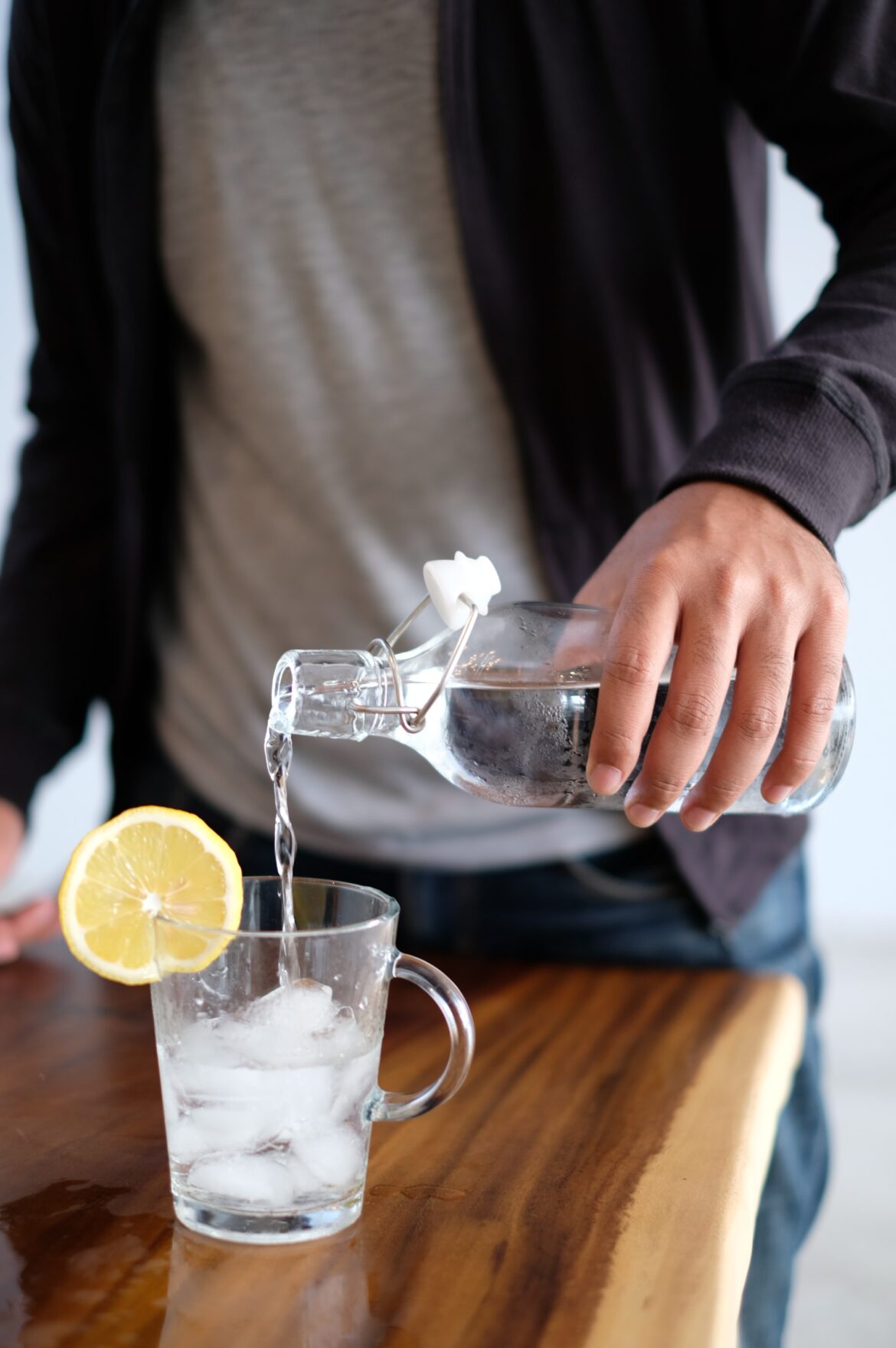We’ve all heard the old saying: Drink eight 8 oz glasses of water a day. But recent research has shown that this is an arbitrary number and that eight glasses of water a day isn’t essential.
Or is it?
There are a lot of factors to consider when trying to figure out how much water or fluids you need to drink daily.
If you go online and search for the answer to the water questions, you’ll get various answers.
For example, the Mayo Clinic website states (in a nutshell) that you need to consider all of the fluids you drink daily plus how much you exercise and how many fruits and vegetables you eat (most of which contain 80-90 percent water). You also have to consider where you live (the type of climate) and your current weight/size.
Yes, you should consider your current weight, activity level, and location, as well as your current level of fluid intake and dietary consumption of fruits and veggies. But there are several other things you need to consider, including:
- Frequency and intensity of exercise.
- Any supplements you may take.
- Any medications you may take.
- Other beverages you consume (including coffee, tea, etc.).
- Health Conditions (diabetes, high blood pressure, Sjogren’s syndrome)
Let’s look at each of these individually.
Frequency and Intensity of Exercise
Hopefully, when you work out, you get a good sweat. That means you’re challenging your body. But it also means you’re using up your water reserves and need to replenish them.
If you exercise daily, you’ll need to drink extra water before, during, and after each workout to compensate.
But it would help if you also considered intensity. For example, if you’re a marathon runner, you probably should drink a sports drink like Gatorade that contains sodium so that you also replenish your electrolytes as well as your fluids.
Supplements
Many people don’t consider supplements important, but they are. While they aren’t as dangerous as prescription medications, they still affect the body and affect your fluid levels. For example, vitamin C is a diuretic, which forces the kidneys to produce more urine, which rids the body of excess fluid. Unfortunately, this means you’ll need to drink more water to compensate for the extra fluid loss.
Prescription Medications
There are so many prescription medications that affect the body’s water levels, albeit not as dramatically as exercise. These include:
- Diuretics
- Opiate Pain Killers
- ACE inhibitors
- Beta-Blockers
- Alpha-Blockers
- Angiotensin Receptor Blockers
- NSAIDs
The above list is not exhaustive, but it does include some of the most commonly prescribed medications that affect water balance. All of the above remedies, except the opiate pain killers, affect kidney function either by decreasing kidney function (as in the NSAIDs and beta-blockers), which means you’ll need less water, or increasing kidney function (as in the diuretics), which means you’ll need more water.
Opiates such as hydrocodone and tramadol have side effects, including excessive sweating and dry mouth.
Excessive sweating will cause you to become dehydrated more quickly if you don’t drink enough water to compensate. However, a dry mouth can make you feel thirsty when you aren’t, leading to too much water consumption that causes an imbalance in which the kidneys can’t rid the body of the excess water fast enough.
Although very rare, too much water consumption can cause hyponatremia (low sodium), which can cause a variety of neurological problems termed water intoxication, a condition that can be fatal.
Beverages
While various beverages can help reach your hydration goals, some beverages can affect your hydration adversely, including:
- Coffee
- Tea
- Energy Drinks
- Juice (specifical fruit)
- Alcohol
Coffee, tea, and energy drinks are typically consumed for the caffeine, which is a diuretic and a stimulant. That’s is why you have to run to the bathroom more frequently when you drink them. Unfortunately, this is also what causes dehydration.
Juice, especially those you buy at the grocery store, contain a lot of sugar. The kidneys flush excess sugar from the body through urine, which is why people with diabetes tend to urinate frequently and feel thirsty constantly.
Most people know that alcohol causes dehydration because that is what causes the hangover the following day. The brain becomes dehydrated, and you end up with a pounding headache that is directly proportional to how much you drank the night before. The best way to beat a hangover? You guessed it. Drink lots of water.
So, How Much Water Should You Drink?
It’s a difficult question to answer. How much liquid (i.e., tea, coffee, etc.) do you drink throughout the day? Do you put anything in them (i.e., sugar, cream)? How many veggies do you eat? And how long and intense do you exercise?
There is no one correct answer. Honestly, I don’t think one could drink that much. People usually have a hard enough time getting in 67 oz on days when not working out.
The truth is, eight 8 oz glasses of water (which is 64 oz) a day is a good rule of thumb, considering our bodies are made up of 80 percent water. If you happen to drink an 8 oz cup of tea without anything in it, you can count that toward your goal. If you put sugar in it, you might want to drink some extra water.
The best way to gauge your hydration? Take a look in the toilet. If your urine is a dark yellow, you’re dehydrated. If it’s pale yellow, or clear you’re drinking enough water. But if you take a lot of supplements, it’s going to change the color of your urine and throw off this “gauge.”
So bottom line?
Eight 8 oz glass of water is a good rule of thumb!


